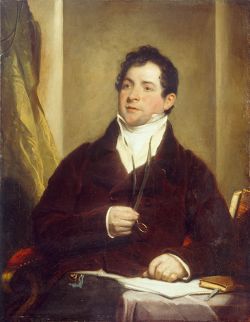Annotation:Last Rose of Summer (The): Difference between revisions
No edit summary |
No edit summary |
||
| Line 1: | Line 1: | ||
== | __NOABC__ | ||
<div class="noprint"> | |||
<p><font face="Century Gothic" size="4"> Back to [[{{BASEPAGENAME}}]] </font></p> | |||
</div> | |||
---- | ---- | ||
<p><font face=" | {{#lst:{{PAGENAME}}|abc}} | ||
---- | |||
<div style="page-break-before:always"></div> | |||
<p><font face="Century Gothic" size="3"> | |||
<div style="text-align: justify; direction: ltr; margin-bottom: 90px; margin-left: 70px; margin-right: 120px;"> | |||
<br> | |||
'''LAST ROSE OF SUMMER, THE'''. AKA and see "[[Groves of Blarney (The)]]." Irish, Air. F Major (Howe, O'Flannagan): E Flat Major (Haverty): G Major (Scanlon). Standard tuning (fiddle). One part (O'Flannagan): AB (Haverty): AABA (Howe): ABBA (Scanlon). "'Tis the last rose of summer" is the title of a song by Thomas Moore [http://en.wikipedia.org/wiki/Thomas_Moore], and appears in '''A Selection of Irish Melodies''' (No. 4, Book 5, 1813), to the older tune of "The Groves of Blarney." See also Pipe Major William Robb's melodically similar retreat march "[[When the Battle's O'er]]." | '''LAST ROSE OF SUMMER, THE'''. AKA and see "[[Groves of Blarney (The)]]." Irish, Air. F Major (Howe, O'Flannagan): E Flat Major (Haverty): G Major (Scanlon). Standard tuning (fiddle). One part (O'Flannagan): AB (Haverty): AABA (Howe): ABBA (Scanlon). "'Tis the last rose of summer" is the title of a song by Thomas Moore [http://en.wikipedia.org/wiki/Thomas_Moore], and appears in '''A Selection of Irish Melodies''' (No. 4, Book 5, 1813), to the older tune of "The Groves of Blarney." See also Pipe Major William Robb's melodically similar retreat march "[[When the Battle's O'er]]." | ||
[[File:moore.jpg|250px|thumb|left|Thomas Moore (1779-1852)]] | [[File:moore.jpg|250px|thumb|left|Thomas Moore (1779-1852)]] | ||
<br> | <br> | ||
<br> | <br> | ||
</div> | |||
</font></p> | </font></p> | ||
<p><font face=" | <div class="noprint"> | ||
''Source for notated version'': | <p><font face="Century Gothic" size="3"> '''Additional notes''' </font></p> | ||
<p><font face="Century Gothic" size="3"> | |||
<font color=red>''Source for notated version''</font>: - | |||
<br> | <br> | ||
<br> | <br> | ||
</font></p> | </font></p> | ||
<p><font face=" | <p><font face="Century Gothic" size="3"> | ||
''Printed sources'': | <font color=red>''Printed sources''</font> : - P.M. Haverty ('''One Hundred Irish Airs vol. 2'''), 1858; No. 187, p. 84. Howe ('''1000 Jigs and Reels'''), c. 1867; p. 114. O'Flannagan ('''The Hibernia Collection'''), 1860; p. 30. Batt Scanlon ('''The Violin Made Easy and Attractive'''), 1923; p. 24. | ||
<br> | <br> | ||
<br> | <br> | ||
</font></p> | </font></p> | ||
<p><font face=" | <p><font face="Century Gothic" size="3"> | ||
''Recorded sources'': <font color=teal></font> | <font color=red>''Recorded sources'': </font> <font color=teal> - </font> | ||
</font></p> | </font></p> | ||
<br> | <br> | ||
---- | ---- | ||
== | <p><font face="Century Gothic" size="4"> Back to [[{{BASEPAGENAME}}]] </font></p> | ||
</div> | |||
__NOEDITSECTION__ | |||
__NOTITLE__ | |||
Revision as of 02:47, 21 December 2019
X:1 T:Last Rose of Summer, The M:3/4 L:1/8 R:Air Q:"Andante Affetuoso" B:P.M. Haverty – One Hundred Irish Airs vol. 2 (1858, No. 187, p. 84) Z:AK/Fiddler’s Companion K:Eb E>F|G2e2 (c>B) |(BG3) (E>F)|G2 (AG) {G}(F>E)|[G,4G4] (E>F)| G2e2 {d}(c>B)|(BG3) (E>F)|G2 (AG) {G}F>E|[G,4E4]|| (B>G)|e2 (e>d) {d}c>B|(B2G2) (B>G)|e2 (e/d/c/=B/)|c2 {=Bcd}!fermata!e2 (E>F)| G2e2 {d}(c>B)|(BG3) (E>F)|G2 (AG) {G}(F>E)|[G,4E4]||
LAST ROSE OF SUMMER, THE. AKA and see "Groves of Blarney (The)." Irish, Air. F Major (Howe, O'Flannagan): E Flat Major (Haverty): G Major (Scanlon). Standard tuning (fiddle). One part (O'Flannagan): AB (Haverty): AABA (Howe): ABBA (Scanlon). "'Tis the last rose of summer" is the title of a song by Thomas Moore [1], and appears in A Selection of Irish Melodies (No. 4, Book 5, 1813), to the older tune of "The Groves of Blarney." See also Pipe Major William Robb's melodically similar retreat march "When the Battle's O'er."

